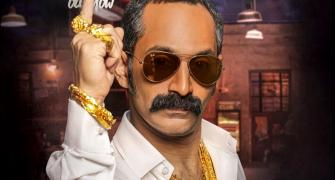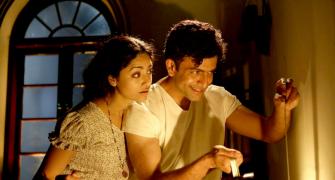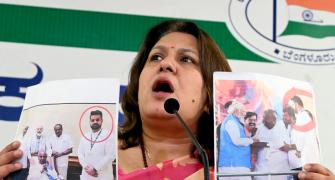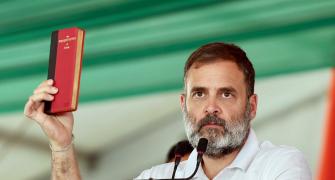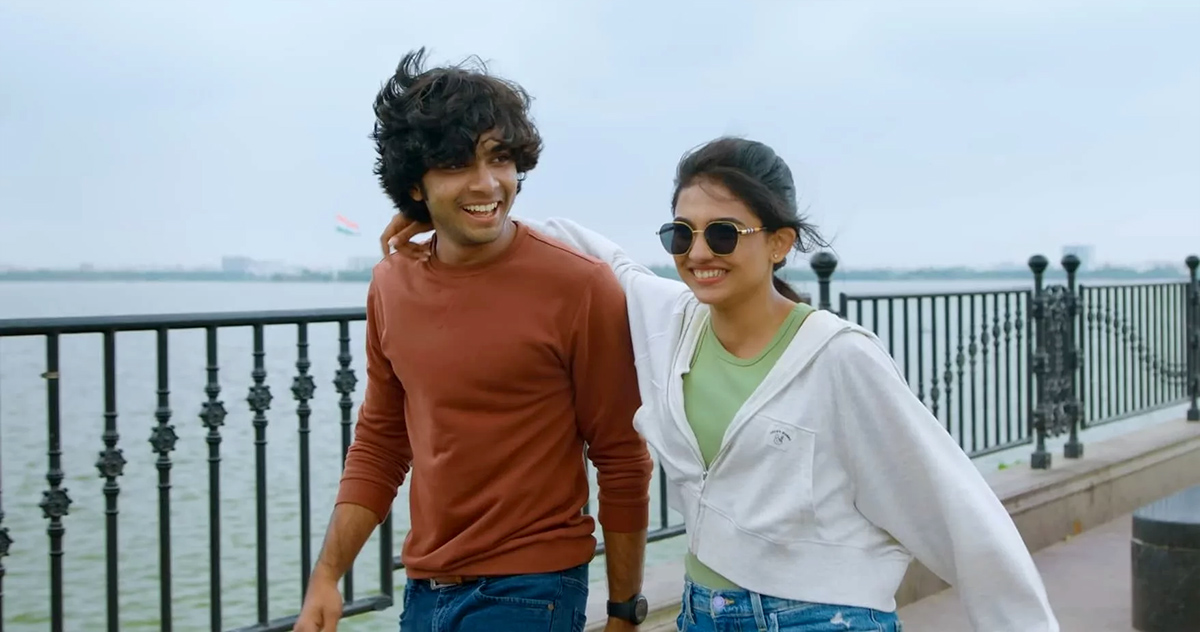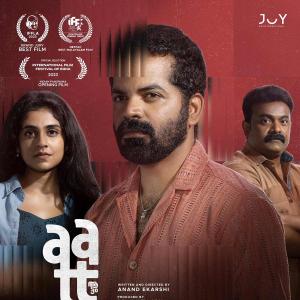Vineeth Sreenivasan deserves applause for striving to blend the past with the present and revoking your memories, states Divya Nair.

For any Malayalee, think bromance in cinema, and two names that would immediately pop up would be Mohanlal and Sreenivasan.
If Mohanlal with his bent shoulder act and characteristic flirty smile embodied heroic charm, Sreenivasan would bring in just the right element of unadulterated fun in an otherwise serious situation.
Their earnest portrayal of Dasan and Vijayan, as unemployed workers struggling to survive in Nadodikkatu, inspired makers to repeat their popular screen names in Anthikad's Pattanapravesham, where they play homicide detectives, and later in Priyadarshan's Akkare Akkare Akkare.
The duo have created scenes and dialogues that evoke laughs in several films and are now being recirculated as fodder for memes and reels on social media.
With Varshangalkku Shesham, Director Vineeth Sreenivasan probably intended to recreate the same bromance magic on screen.
The elements were all in place: The sons of two famous actors (Pranav and Dhyan) supported by the daughter of one of their mentors (Priyadarshan), produced by the grandson of the late P Subramaniam (Vishakh) of Merryland Studio.
The story is set in two time zones where two friends and artists -- Murali (Pranav), a musician, and Venu (Dhyan), a writer -- travel from a small village in Kannur, Kerala, to Kodambakkam in Chennai to make films.
The multi-talented, free-spirited Murali convinces the reticent Venu to believe in his potential and take the big plunge.
All's well until one of them becomes successful while the other crumbles.
Unaware of each other's fondness and sacrifice, the duo split until they reunite, many years later.
A much older Venu narrates their story to a young taxi driver (Vineeth Sreenivasan), who plays the sutradhaar, who unites them.
Apart from the two time zones, there are also two distinct films here.
The pre-interval segment is where Venu tells us about the friendship between two artistes, their love for cinema followed by the rejection and struggles they faced in their careers.
While essentially, this is the backstory that should be driving the film, interestingly, it is not.
You can see that Vineeth and the writers have done justice in creating the premise for this friendship with a lot of sentimentality.
But somehow, the actors are not able to flesh out their personalities or represent the character arc. For example, when Annie (Kalyani Priyadarshan) rejects Murali, his heartbroken character displays his first sign of weakness and vulnerability of escapism, which is an important trait that continues throughout the rest of the film.
But we know about it only through the crescendo in music or Venu's admission to the taxi driver. Not from Murali.
Similarly, when Venu mocks Murali about his failures, we don’t get a sense of the situations and people who drove him to alter his personality.
The second half of the film, where the friends unite and work together is where the pace of the film picks up.
By now, you're tired of watching the brooding Murali who is unable to arouse any emotion or longing for his character but we are constantly reminded that he is important for the film.
Of course, you can sense how the character must have been written, keeping in mind a younger Mohanlal, who could have elevated his depiction of Murali several notches.
But what you get instead is Pranav who leaves much to be desired even in some of the well-written sequences.
In the first scene, where an eager Venu opens a small door and gets a first glimpse of Murali, Venu looks admiringly at the capable artiste in front of him. But Murali puts in a disappointing act of a drunk musician whose punches don't land. Even when they are pulling potshots at each other, you don't enjoy it because it looks forced, rather mechanical.
Dhyan salvages the situation in several such instances where the makers would have wanted to establish a chemistry and inseparable bond between Venu and Murali, Dhyan and Pranav, the characters, and the actors.
The second half introduces us to Nivin Molly, the talented wannabe as the subtle reality check to nepotism that is ruining Malayalam cinema.
Nivin's monologue on body-shaming is a crowd-puller.
Aju Varghese, in dual roles as the son and father, as the producer of their film, is another saving grace of the film.
Neeraj Madhav and Y G Mahendran impress in their roles, adding variety and flavour to the script. Basil Joseph and Shaan Rahman are equally remarkable.
The background music by Amrit Ramnath is the soul of the film. The track Nyabagam, reportedly penned by Amrit's mother, is beautiful.
The post-interval scenes are full of adrenaline and guarantee you ample laughs, also making up for the slow burn pace in the first half.
While Venu and Murali are clearly not your affable Vijayan and Dasan, Vineeth deserves applause for striving to blend the past with the present and revoking your memories.
In the final scene, when one of them asks why either of them didn't think of making a film together, Venu crosses his arms while Murali leans in and casually puts his left arm around his friend's shoulder and says: 'Ellathinum athintethaya samayam undu dasa (There is a right time for everything, Dasa).'
You get the reference, don't you?



